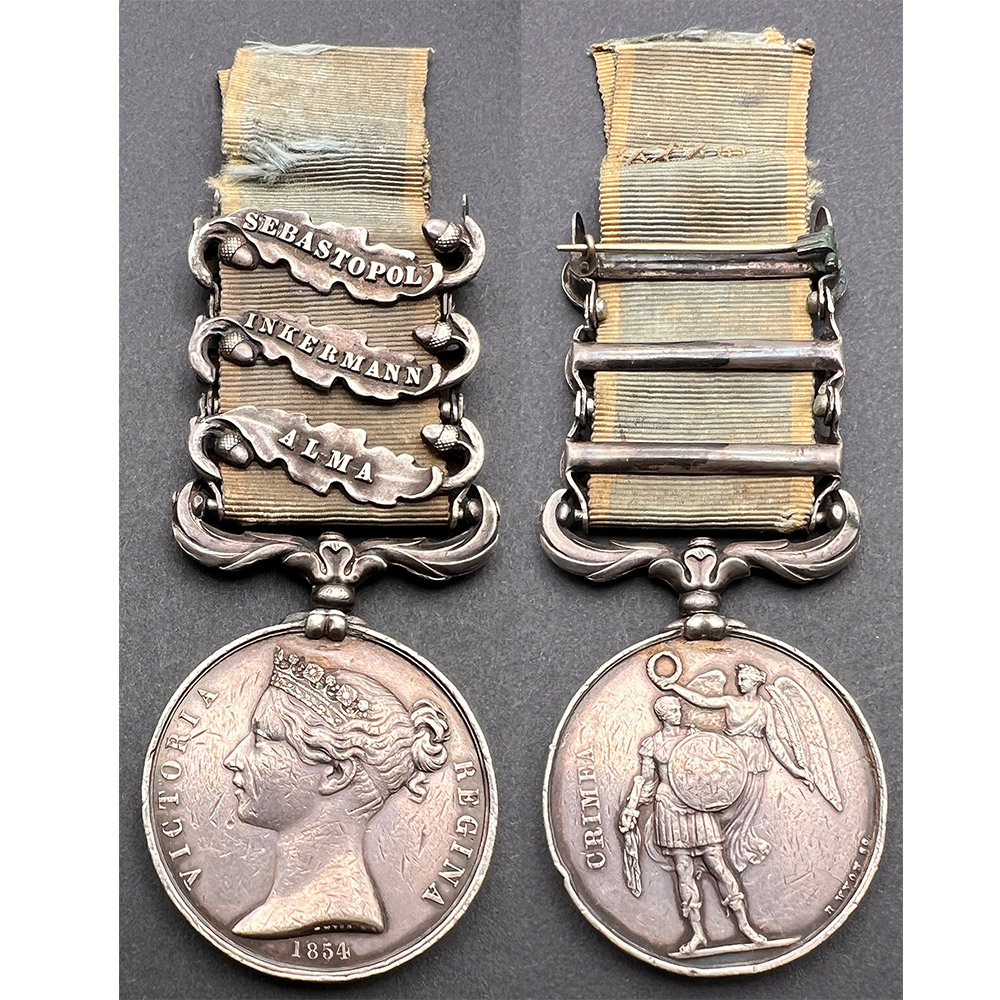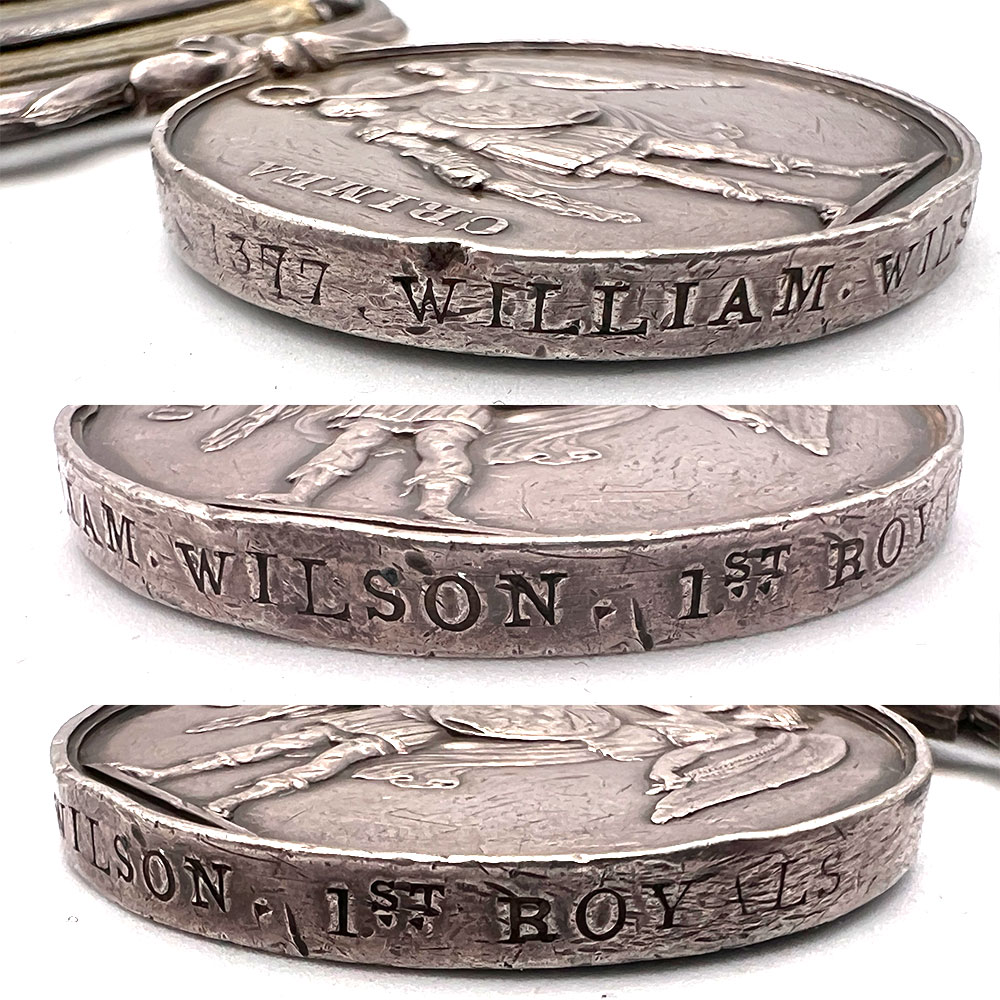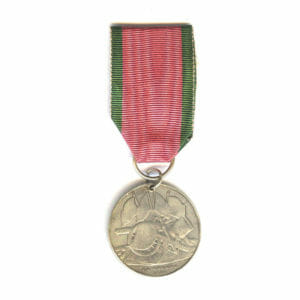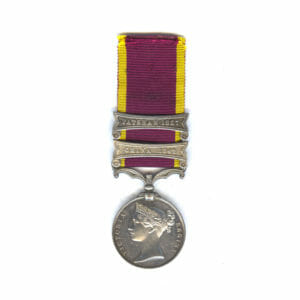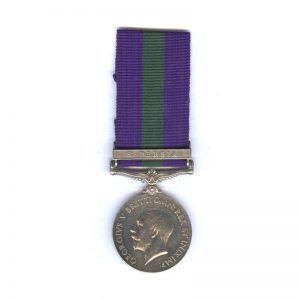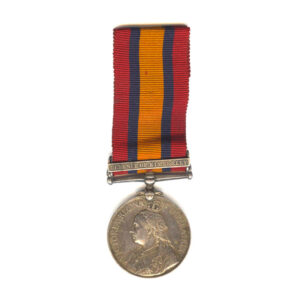Description
Crimea Medal, 3 bars, Alma, Inkermann, Sebastopol, 1377 Private William Wilson, 1st Royal Regiment of Infantry, The Royals, Scotsman from Landruther, Scottish Borders.
Edinburgh Evening News, 4th December 1893:
“DEATH OF AN OLD SOLDIER AT STOW
A Crimean Veteran named William Wilson died at Stow on Saturday night, aged nearly 80 years.
He was born in the Waterloo year. In the course of his 21 years of service in the Royal Scots Regiment, from which he got his discharged in 1860, he was in the Crimea, taking part in Sebastopol, Inkerman and Alma.”
Impressed in a neat “depot” or regimental style: “1377. WILLIAM. WILSON. 1st ROYALS”
The top Sebastopol Clasp has had a pin fitted to the reverse to allow for breast wear.
With a good piece of original silk ribbon.
With copy service records.
Full entitlement, alongside the Turkish Crimea Medal, did 21 years but a few drunken moments meant he would miss out later on the LSGC.
Mr William Wilson, was born on 26th January 1818 in Westruther, Lander, Berwickshire, now the Scottish Borders.
Westruther is a village south east of Edinburgh.
He was born in the area, and baptised at Nenthorn (0.3 miles from Westruther), on 8th March 1818.
His father, also named William Wilson, was a Servant.
On the 25th June 1839 at Edinburgh, William signed up for army service with the “1st Royals”, the 1st Regiment of Foot.
He would go on to serve for 21 years before he received his discharge to pension.
He saw service with the 1st Battalion of the 1st Foot.
During this time, out of 21 years and 24 days of service, 13 years 10 months were spent overseas:
Gibraltar, 6 Years 3 Months,
West Indies, 2 Years 1 Month, This would be from about 1843-1845, the regiment being moved over there from Canada, “which was complicated by half the regiment being shipwrecked and delayed several months, but was unsuccessful and the regiment returned finally to Scotland in 1846.”
There is a good chance he was on the Premier at the time of their shipwreck during 1843, you can read an account of the shipwreck below
The Royal Scots Website, Article on the Shipwreck of the Premier.
North America (Canada), 3 Years 4 Months, this would be 1840-43, just after the regiment had fought against the Canadian Rebellions of 1837, they remained stationed there until 1843 when moved to the West Indies.
Turkey, 4 Months,
Crimea, 1 Year 10 Months, these cover the Crimean War period.
After finished his 21 years he was “discharged at his own request after a service of 21 years, authority dated Horse Guards, 8th August 1860.”
His conduct: ”They have been Good, he is in possession of 3 good conduct badges, has been twice tried by Court Martial.”
He spent his 21 years all as a Private, no seeking advancement.
On 11th October 1847, he was first tried and imprisoned: “For Habitual Drunkenness.”
The second Court Martial occurred on 8th April 1851, for once again “Habitual Drunkenness.”
After his discharge in late 1860, he intended to live in Edinburgh, aged 42 and now with Grey hair.
After returning back to Scotland, he appears in the 1861 Census, living at Shoemaker’s House in Stow, Midlothian, Scotland.
He never married during his service, and went to live with John and Mary Brownlee, John being his stepfather, a local Cobbler and Shoemaker.
William was listed as a “Garden Labourer and Chelsea Pensioner”
By 1871, he had finally got married and settled in Stow Village, Stow.
Where he lived with his wife Elizabeth
